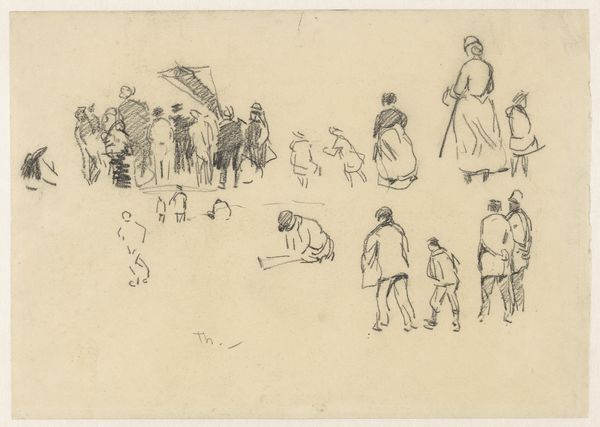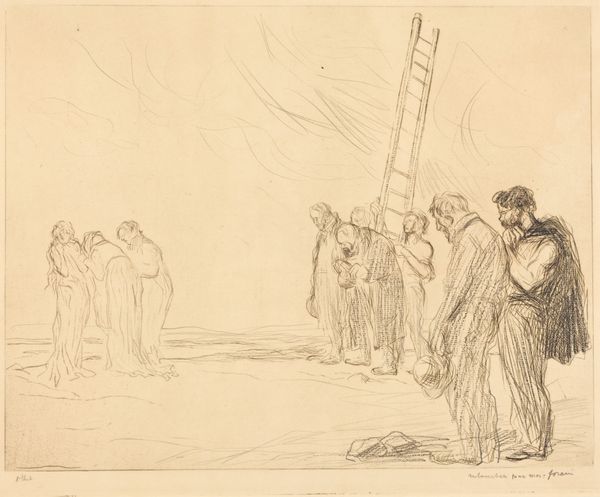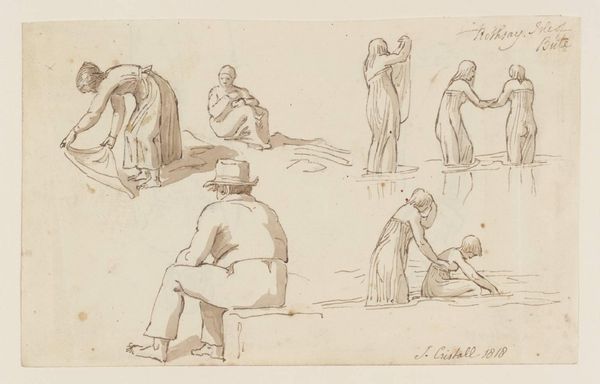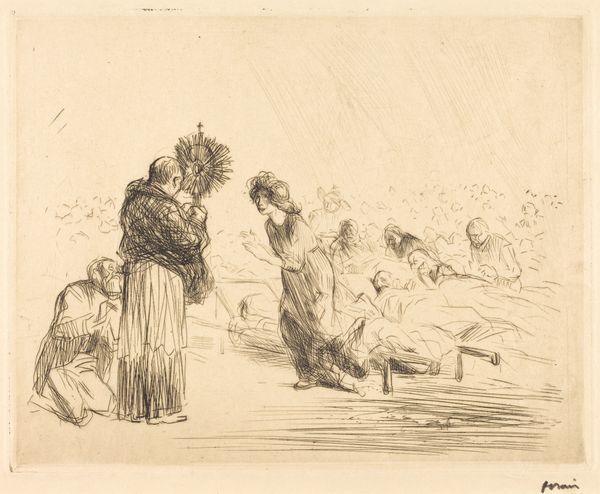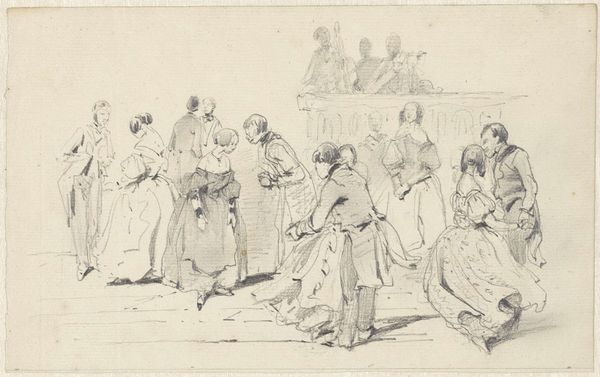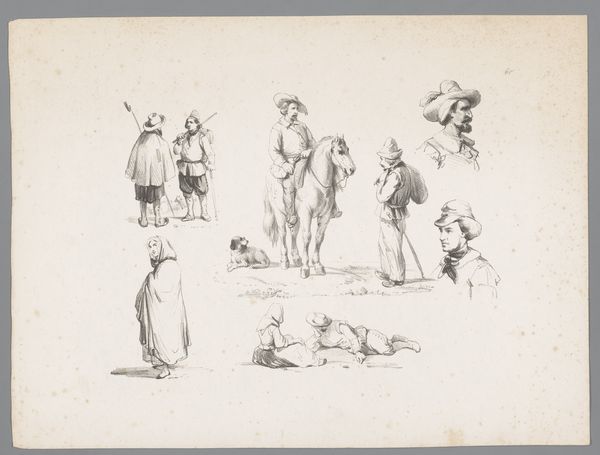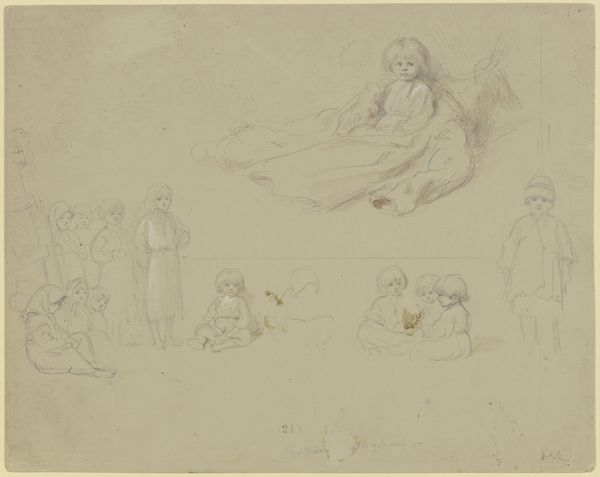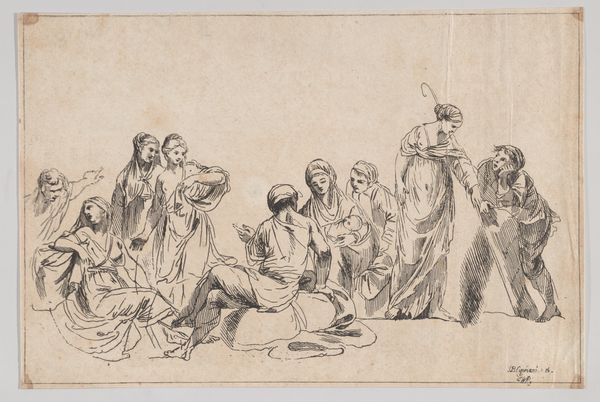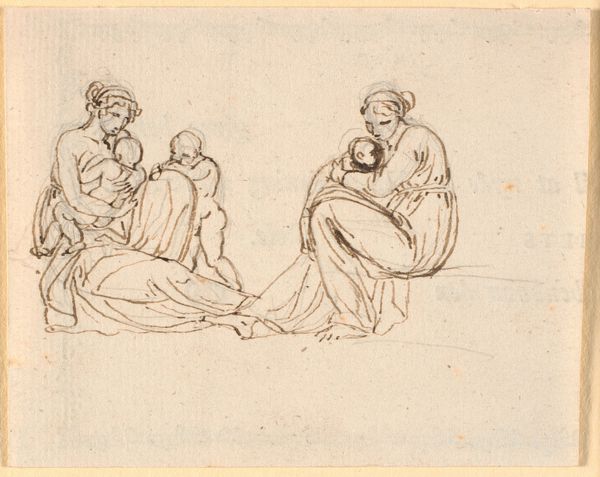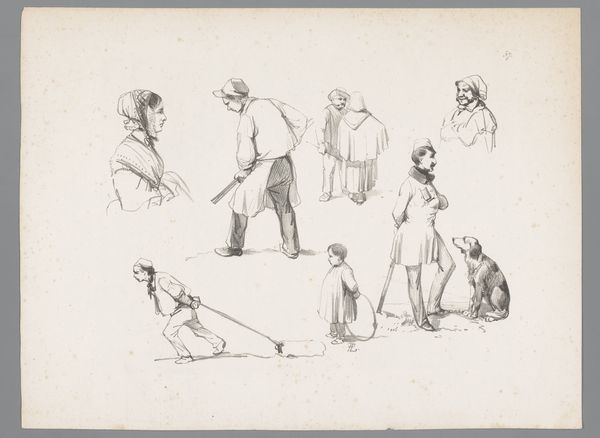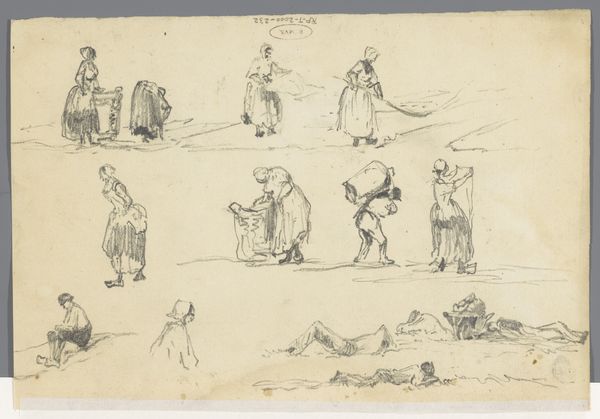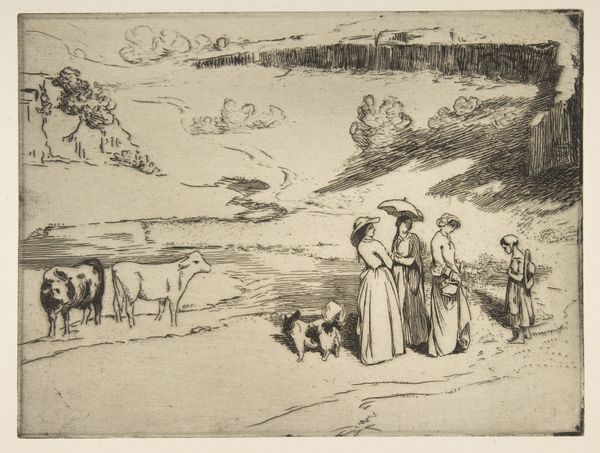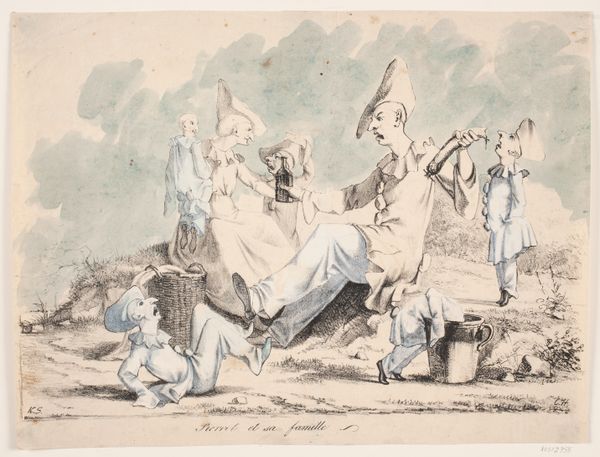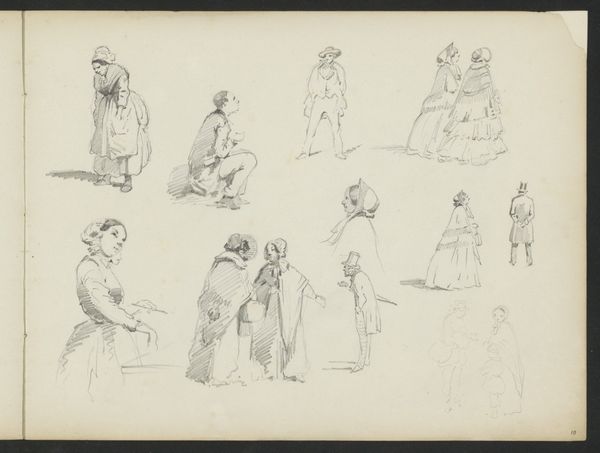
drawing, paper, pencil
#
drawing
#
light pencil work
#
quirky sketch
#
pencil sketch
#
landscape
#
paper
#
personal sketchbook
#
sketchwork
#
ink drawing experimentation
#
pen-ink sketch
#
pencil
#
sketchbook drawing
#
genre-painting
#
storyboard and sketchbook work
#
sketchbook art
#
realism
Dimensions: height 191 mm, width 275 mm
Copyright: Rijks Museum: Open Domain
Editor: So, this is "Sheet with studies of labourers", created between 1840 and 1880 by Johannes Tavenraat. It's a pencil drawing on paper. I find the sketch-like quality so evocative, like we're getting a glimpse into everyday life, but there's a slight melancholy to it, almost anonymous. What do you see in this piece? Curator: This work is compelling because it invites us to consider the narratives often left out of grand historical accounts. Tavenraat’s focus on laborers asks us: Whose stories are deemed worthy of representation? Consider the period—the 19th century was a time of immense social upheaval, industrialization, and burgeoning class consciousness. How does Tavenraat’s choice of subject matter challenge or reinforce existing power structures? Is he romanticizing labor or simply documenting it? Editor: That's interesting. I hadn't considered the social context so directly. It feels like a straightforward depiction. Curator: But is it *really* straightforward? Look closely. What details does he emphasize? How does he depict the individual versus the collective? Consider that even seemingly neutral observations are always filtered through the artist’s perspective and the prevailing ideologies of the time. Understanding this helps us move past surface-level readings. Editor: So by looking closer, we can understand whose story is really being told, and why. Curator: Precisely. Art doesn’t exist in a vacuum. It’s a product of—and a commentary on—the society that produces it. Approaching art with these questions allows us to engage with it on a deeper, more meaningful level. Editor: This really broadens how I think about these types of drawings. I will consider social dynamics from now on. Curator: It’s all about layers! Remember that even a simple sketch like this can be a powerful tool for social commentary.
Comments
No comments
Be the first to comment and join the conversation on the ultimate creative platform.
